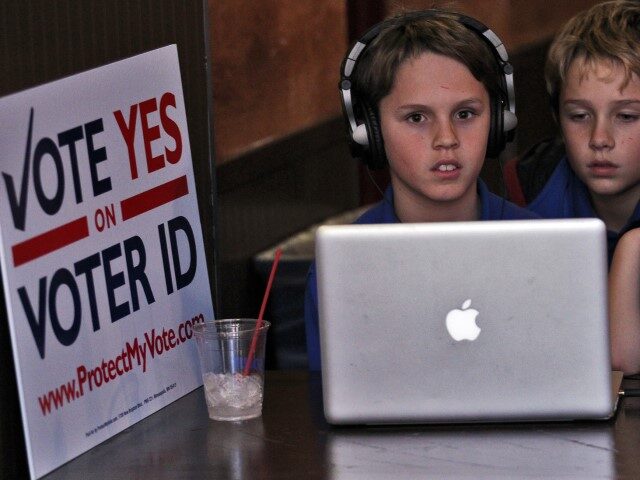Top Nevada Democrats are dismissing legislation to enhance election integrity, which would incorporate basic protocols such as voter ID, deeming such “unconstitutional.”
Nevada Democrats — including Assembly Speaker Steve Yeager, state Attorney General Aaron Ford, and Secretary of State Cisco Aguilar — recently held a press conference where they discussed their agenda moving forward. During the press conference, the Nevada Globe’s Megan Barth asked the Democrats about the future of Republican Gov. Joe Lombardo’s proposed legislation, designed to increase the security of elections. In part, the legislation would establish basic requirements, such as voter ID to vote, and repeal the use of universal mail-in voting.
More specifically, SB 405 even requires the Department of Motor Vehicles to issue free voter identification cards, addressing the complaints from the far-left, who consider it too difficult for some to obtain a form of identification.
Per the bill:
Sections 3 and 4 of this bill require: (1) the Department of Motor Vehicles to issue a voter identification card, free of charge, to a registered voter who does not possess one of the acceptable forms of proof of identity and who is experiencing financial hardship; and (2) the registered voter to submit certain information with an application for the identification card. Section 5 of this bill requires the Secretary of State to adopt regulations relating to the issuance of such a voter identification card.
Further, the bill revises requirements to mail-in ballots, mandating that mail-in voters “include certain personal identifying information with his or her mail ballot.” It also establishes a new deadline for receiving those ballots.
Nevada Democrats are having none of it. Assembly Speaker Steve Yeager made it clear that Democrats will not give the election integrity legislation the time of day.
“This isn’t a problem that exists in the state of Nevada. It’s simply a solution in search of a problem,” Yeager said, asserting that there are no election issues in the Silver State.
“What we need is for elected officials in this state to stand up and speak the truth, and that is that our elections are safe and secure,” he continued, criticizing those who identify voter fraud as an issue that needs to be addressed.
“You can’t be a sore loser. You know, nobody likes a sore loser. The answer can’t be if you lose an election that somehow there was fraud. The answer is that you didn’t connect with the voters and you didn’t get enough votes to win that election,” he continued, adding that there are “no plans for a hearing on that bill.”
Democrat state Attorney General Aaron Ford took to the podium and agreed “wholeheartedly” with Yeager’s comments.
“Listen, when the government wants to put a requirement in front of you exercising a particular right, if it’s not constitutional, the question is simple: Is there a rational basis for doing it?” he asked.
“It’s not incumbent upon us as the citizens to prove whether it’s compelling or not. It’s incumbent upon the government to tell you why they are making you do something extra before you can exercise your constitutional right,” he said, failing to explain how requiring an individual to show ID is impeding on the fundamental right to vote.
Ford ultimately said that voter fraud, as compelling as it sounds, has not been demonstrated in a “sufficient amount” to “justify the imposition of a new requirement to exercise your right to vote.”
Ford then deemed requiring voter ID fundamentally “unconstitutional.”
“And I can tell you this, that this attorney general will not abide by an unconstitutional act like voter ID here in this state,” he continued, as Secretary of State Cisco Aguilar suggested that such requirements essentially limit access to the ballot box.
Not one of these speakers explained how proving one’s identity before voting violates the right to vote:
WATCH:
Their remarks come months after the release of a survey by The Nevada Independent and OH Predictive Insights, which found 74 percent of Nevada voters support a voter ID law. Only eight percent opposed it. Further, there was bipartisan consensus on this matter, as 93 percent of Republicans said they were in favor of a voter ID requirement — a sentiment held by 62 percent of Democrats and 68 percent of independent voters in the state, as well.

COMMENTS
Please let us know if you're having issues with commenting.